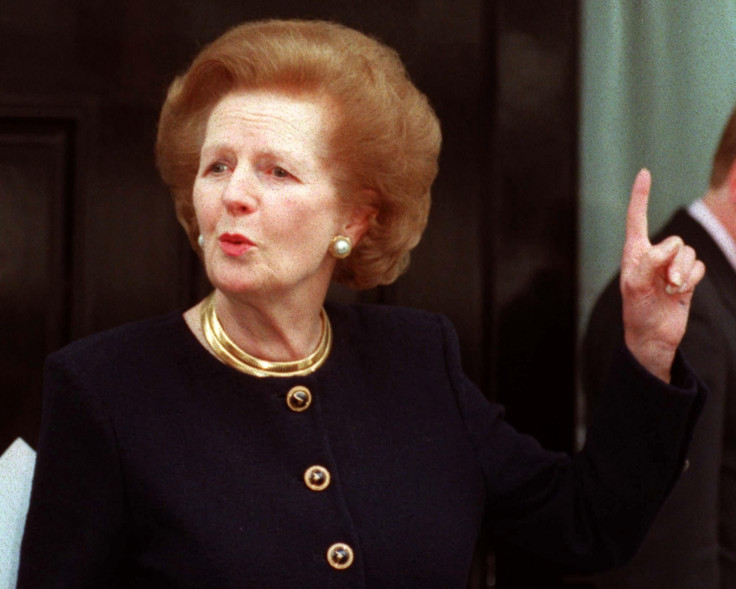Margaret Thatcher's Green Streak: Iron Lady Demanded Action On Climate Change

Contrary to the image of the late Margaret Thatcher as an unwavering free market advocate, she also believed that economic growth should not come at the expense of the environment and demanded action on climate change toward the end of her tenure as Britain’s prime minister.
In the late 1980s, Thatcher began to express concern about the environment, though she remained skeptical of many groups that advocated on its behalf.
Nevertheless, the formally trained chemist held a deep respect for the scientific method and viewed the issue of climate change as one that should transcend politics even if politics too often obscured it.
In September 1988, Thatcher gave a speech to the Royal Society in which she questioned the limits of exploiting fossil fuels.
“For generations, we have assumed that the efforts of mankind would leave the fundamental equilibrium of the world's systems and atmosphere stable,” she said.
“But it is possible that with all these enormous changes (population, agricultural, use of fossil fuels) concentrated into such a short period of time, we have unwittingly begun a massive experiment with the system of this planet itself,” she added.
Thatcher went on to discuss the dangers of a buildup of greenhouse gases in the atmosphere resulting from human activity, which she said “could lead to climatic instability.”
Specifically, she referenced one chain of events that could follow an increase in average global temperature -- melting of glacial ice, rising sea levels and the submersion of coastal regions.
Thatcher did not only express her environmental views within the scientific community, she also challenged members of her own Tory party to become more environmentally responsible.
“It's we Conservatives who are not merely friends of the Earth -- we are its guardians and trustees for generations to come,” Thatcher said in an October 1998 speech at the Conservative Party Conference.
“The core of Tory philosophy and for the case for protecting the environment are the same. No generation has a freehold on this earth,” she added.
Thatcher also carried that message to the United Nations in November 1989, and called on industrialized nations to contribute more in mitigating climate change.
“The environmental challenge that confronts the whole world demands an equivalent response from the whole world,” she said. “Every country will be affected and no one can opt out. Those countries who are industrialized must contribute more to help those who are not.”
Thatcher backed up her rhetoric by supporting the establishment in 1988 of the U.N. Intergovernmental Panel on Climate Change.
At home in 1990, she opened the Met Office Hadley Centre, which has been a leading scientific institute in climate change research.
Toward her later years, Thatcher became frustrated with what she believed were policies that capitalized on the politicization of climate change, though she never doubted its existence or recanted her previously stated beliefs.
© Copyright IBTimes 2024. All rights reserved.











